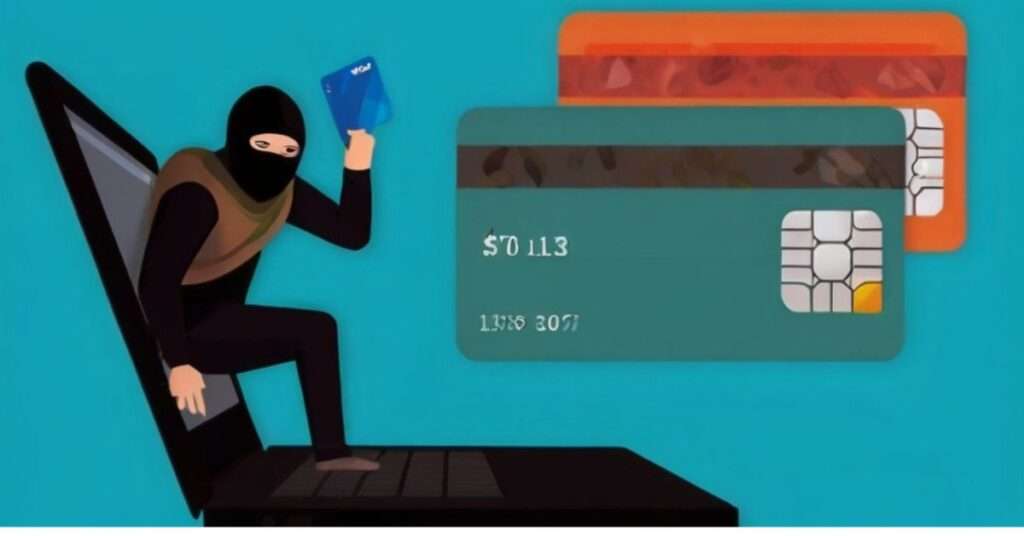Table of Contents

Hey there! Isn’t it amazing that we’re living in the digital age where just a click can take care of our financial transactions? But, like every coin has two sides, this convenience also comes with its own set of challenges.
With the rise of online banking, digital wallets, and investment platforms, we also see a rise in the risk of financial fraud. Online scams have became so notorious that there is a series about it called “Jamtara” in popular OTT platform Netflix. It is based on real life incidents. Netflix’s “Jamtara” show us how crafty these criminals can be. So, it’s really important for us to stay alert and know how do you know if you are talking to a scammer.
9 Common ways a scammer can scam you
- Phishing Scams: Phishing scams involve fraudulent emails, messages, or websites designed to trick users into revealing sensitive information such as login credentials, banking details, or personal information. Scammers often impersonate legitimate organizations or government agencies to gain the trust of their victims. Sometimes scammers send threatening emails, messages or calls and tell users if they don’t listen, they will get police warrant or court notice.
- Identity Theft: Many times scammers call people, posing as bank officials ask to update KYC by giving them personal information, such as Aadhaar numbers, PAN card details, or bank account information. This is a common way to commit identity theft. They may use this information to withdraw money from your account, apply for loans or credit cards, or engage in other illegal activities.
- Fake Investment Schemes: You might have heard about Chit fund cases. Many times scammers lure individuals with promises of high returns on investments in schemes that are too good to be true. These schemes often require individuals to recruit others to join, creating a pyramid-like hierarchical structure. Eventually, the scheme collapses, and early investors lose their money. There also have been cases where scammer gives trading tips and make big promises to attract retail investors. Sometimes retailers are asked to give subscription fees for trading tips and join some telegram channel.
- UPI fraud: UPI scams are increasing day by day. Sometimes scammer send money to victim’s account then call the victim and tells him/her that it was a mistake and they need the money. They then send a malicious link calling it their UPI link to send the money back. As it was a fake or malicious the moment the victims’ click on it, it gives the scammer access victim’s phone. Means they hacked it. Sometimes scammers call and send victims a QR code and tells them that they will get money if they scan QR code. But once they scan it, they are prompt to enter UPI pin and when they enter it money is deducted from their account and the scammer gets the money.
- Social Media Scams: Scammers use social media platforms to impersonate individuals or organizations, create fake profiles, and engage in fraudulent activities. Common social media scams in India include romance scams, lottery scams, and job scams, where victims are tricked into sending money or personal information.
- Loan Scams: Loan scams target individuals in need of financial assistance by offering quick and easy loans with low interest rates and minimal documentation requirements. Sometimes people get messages of preapproved loans. This is done to lure people into give them loans. However, these loans often come with hidden fees or exorbitant interest rates, trapping borrowers in a cycle of debt.
- Lottery and Prize Scams: In these cases victims receive messages or calls informing them that they have won a lottery or prize draw, often claiming to be from reputable companies or government agencies. But to claim the prize, victims are asked to pay processing fees or taxes upfront in a specifit bank account. But they never get the prizes.
- Job Offer Scams: There has been cases where scammers pose as recruiters or employers offering lucrative job opportunities with high salaries and benefits. They may request payment for job application fees, training materials, or background checks, but there is no actual job or employment opportunity.
- Real Estate Scams: In real estate scams, fraudsters advertise fake rental properties or resale listings at attractive prices to lure potential tenants or buyers. Victims may be asked to pay advance rent or booking fees, only to discover that the property does not exist or is not available for rent or sale.
Let’s Talk Tactics
Financial scammers are pretty resourceful, using all sorts of tricks to fool people. One thing they’re really good at is playing with emotions like fear, greed, and urgency to make their victims slip up and reveal sensitive info or send money.

Here’s What to Look Out For
- Unexpected Contact: If you get an email, call, or message out of the blue from someone you don’t know offering a great financial opportunity or needing urgent action, be careful. Real financial institutions typically don’t reach out like this. Banks usually will tell you to visit the bank if there is a problem.
- High Pressure: Scammers love to rush you, making things seem urgent so you don’t have time to think or check if the offer or transaction is legit. Remember, you can not win a lottery that you haven’t played.
- Asking for Personal Info: Real financial institutions usually won’t ask for sensitive info like passwords, PINs, or aadhaar and PAN numbers over email or phone. Be really careful if someone asks for this kind of info, especially if it seems odd or comes from a source you can’t verify.
- Too Good to Be True Offers: Watch out for offers that promise really high returns with almost no risk. You know that old saying: if it sounds too good to be true, it probably is. Always do your homework and ask for advice from financial experts you trust before you commit to any investment.
- Unsecured Websites and Communication: Always check that any website asking for your personal or financial info is secure (look for “https://” and a padlock icon in the address bar). And be careful with messages from unsecured or dubious email addresses.
How to Stay safe online
- Become self Aware: Remember, even if the person calling you knows your name, name of your bank, phone number; it doesn’t mean the caller is a genuine person. Even if they tell your Aadhar or PAN number , don’t share any pin, OTP with anyone who is calling you.
- Stay Up-to-Date: Read articles in newspapers about the latest scams and fraud cases. Now a days even scammers are trying new things so it’s better to stay up to date. The more you know about these things, the better you can protect yourself. Knowledge really is the power to stay safe online.
- Check Identities: Before you start any financial transaction or share sensitive info, make sure the person or organization you’re dealing with is who they say they are. Cross-check contact details with official sources and watch out for anything that seems off. If someone is giving trading advice for specific stocks, check if he/she is SEBI registered. Follow this link. Educate yourself before taking any financial decision. You can also follow our blogs to gain a perspective.
- Use Secure Channels: Always use secure, reputable platforms for financial transactions and sharing sensitive info. And try to avoid public Wi-Fi networks for these activities, as they can be easier for cybercriminals to intercept. Don’t use public charging sockets, always carry your own charger, charge your device with it.
- Turn on Two-Factor Authentication: If you can, use two-factor authentication (2FA) for your online accounts. This adds another layer of security by requiring a second form of verification, like a code sent to your mobile device, along with your password.
- Trust Your Gut: If something feels wrong or too good to be true, trust your instincts and be cautious. Take time to look into things more and ask for advice from people you trust before making any decisions.
Conclusion (How do you know if you are talking to a scammer):
The digital world has made managing our finances a lot easier, but it also comes with risks, like financial fraud. By getting to know the tricks scammers use and taking steps to protect yourself, you can reduce the chance of being caught out by an online scam. Remember, being alert and skeptical can be your best defense against financial fraud.
As you explore the digital world of financial services, stay informed, be careful, and always double-check before you trust. Your financial security and peace of mind are definitely worth the extra effort. Stay safe Online